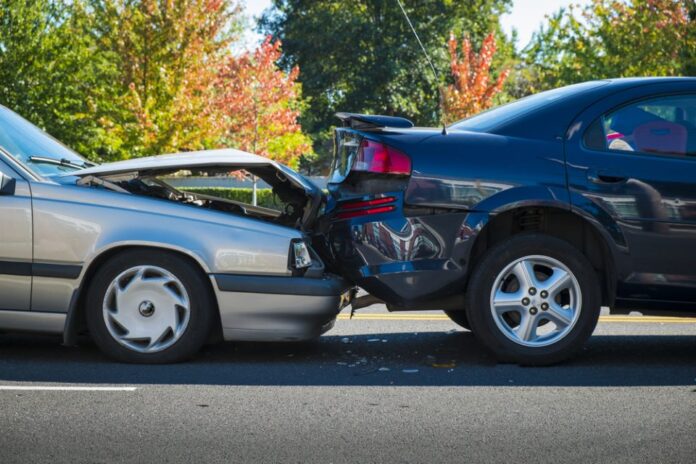People are often distraught when involved in a motor vehicle accident, even if no one is injured and the damage to the vehicle or property is minor. Today’s settlement guide discusses what to do if your car is involved in an accident, major or minor, in Australia.
Important aspects:
- Failing to stop after a motor vehicle collision is an offense in Australia
- In most minor accidents, if no one is injured, the parties involved in the accident can resolve the matter between themselves
- If you are physically or mentally injured in a transport accident, you can claim from your state or territory’s compulsory third-party insurance (CTP)
- “TAC doesn’t look at who caused the accident. Depending on what you need based on your injury, TAC can pay for things like medical assistance, return to work.”
You must remember that failing to stop after a motor vehicle collision is an offense in Australia.
The first thing to do after a crash is to make sure that everyone involved is safe, as well as to determine if anyone needs immediate medical attention.
New South Wales Police Sergeant Scott Stafford, of the Traffic and Highway Patrol Command, said it was important to stop after an accident to look out for the safety of people, other vehicles traveling on the road, and to see if there was anything dangerous around other vehicles.
If someone is injured, you should immediately call Triple Zero (000) for help and initiate first aid if possible.
Emergency operators will call the police and the ambulance or fire service to attend the scene, if the accident is serious.
“Major accidents are those where someone is trapped, killed or injured in a vehicle, if one of the drivers appears to be under the influence of alcohol or drugs, or if a party involved in a collision fails to exchange their details or stop the vehicle.”
During this time, if the traffic on the roads is obstructed or if heavy vehicles are involved in the collision, the police will be present at the accident site.
Police may intervene if someone becomes aggressive and threatens the other party or starts making loud noises.
However, in most minor accidents, if no one is injured, the parties involved in the accident can resolve the matter between themselves. There is no need to call the police or initiate a criminal investigation.
Sergeant Stafford said if both vehicles are able to drive after the accident, park in a safe place on the side of the road to exchange details.
“This requires exchanging each driver’s details and motor vehicle details. Take a photo of each vehicle, including the registration plate. Also take a photo of the damaged area of the vehicle, take a photo of the other person’s license, and ask for a phone number. For minor collisions, these details should be given to your insurance company. Pay, then they will see who was at fault for the accident and take action to fix the car.”
Jane Foley is a senior solicitor at Financial Rights, a government-funded community legal center that advises and represents people involved in motor accident disputes.
If you’re not at fault, it’s important to get the other party’s details to avoid unnecessary costs, he says.
“Having your own vehicle assessed by a mechanic after an accident. Go for it and get a quote to fix one. Then send the photo and assessment to the other party’s driver. The other driver will likely pass this on to their insurer and that insurer will contact you directly. The other party’s insurer will try to take your car to their mechanic. But you don’t have to, you don’t even have to get multiple quotations. They have no right to see or inspect your car.”
MS Foley says to get paid directly from the other driver’s insurer; you must send them a letter of demand. However, the insurer may decide to negotiate the amount or evaluate your quotation.
“If you’re not at fault and have an insurance claim, and if you don’t have the other party’s name and address, your insurer will ask you to give them access. But if you have information about the above party, you don’t have to. Give them if there is any witness or CCTV footage. Notice if that might come in handy later.
If you have car insurance, contact your insurer as soon as possible to report the incident.
If it’s clearly not your fault and the other party has insurance, you should ask the other driver to claim the damage on their insurance, says MS Foley.
“If your claim is less than $15,000 and the other party’s insurer is uncooperative, you can complain to the Australian Financial Complaints Authority. There is no fee, and it’s an online dispute resolution scheme. Through this they will take a decision and finally try to resolve the matter between both parties. But if the amount is more than $15,000 and the insurer won’t come to the table, you’ll have to sue them in local court. But before you do that, I strongly recommend that you seek personal legal advice.”
However, if you are at fault and you are insured, you can claim your costs from the insurance company. But if you’re not insured, you’ll probably get a demand letter with a quote from the other party for repairs. But there is room for negotiation.
“In that case take the photo and quotation to your own mechanic and get his opinion. You can discuss payment arrangements. If unable to pay upfront, offer to pay as per your convenience. But again, I would recommend taking legal advice.”
MS Foley said the Financial Rights website has a sample letter of demand and online tools on what to do in different situations.
If you are physically or mentally injured in a transport accident, you can claim from your state or territory’s compulsory third-party insurance (CTP).
The premium for CTP Insurance is charged at the time of registration of the motor vehicle. It won’t pay for vehicle repairs, but it does cover property damage and medical expenses for people injured in accidents if the incident is not work-related.
Individuals injured in work-related motor accidents must file workers’ compensation claims with their employer’s insurer.





